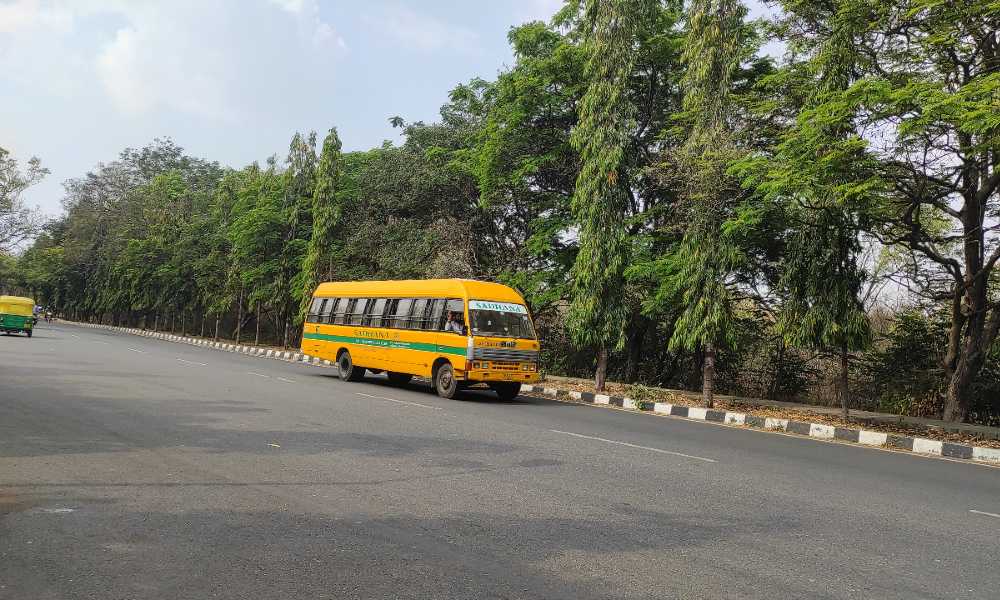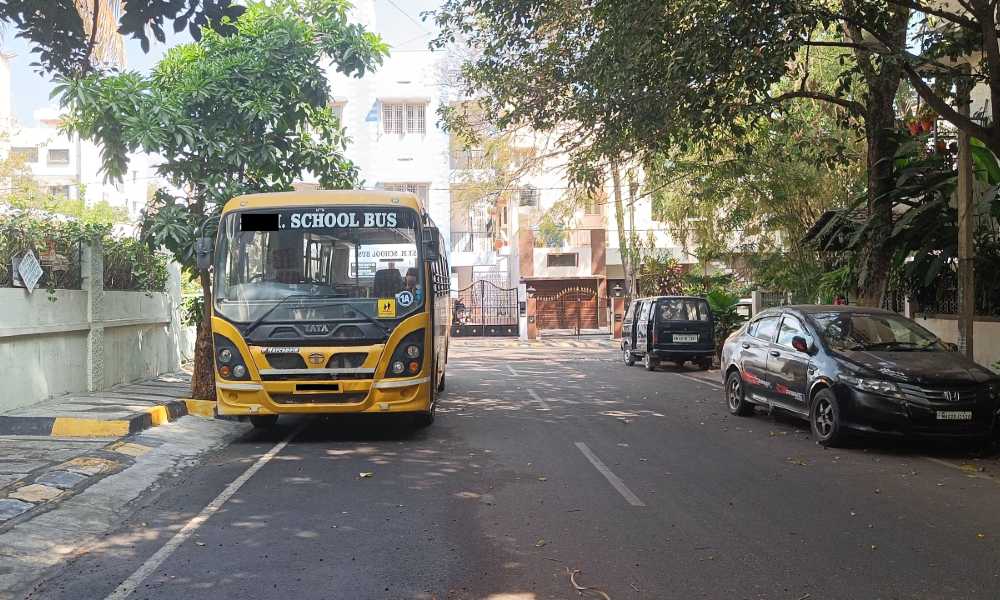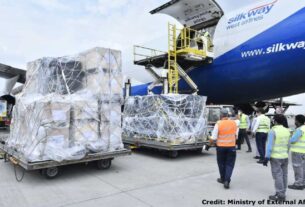School managements express challenges in introducing alcometers.
It was a Sunday morning. Parvati, a middle-aged working parent sat down with her morning coffee and picked up the day’s newspaper. As she flipped through the pages, she nearly choked on her coffee when she read an article reporting the arrest of 16 school bus drivers for driving under the influence of alcohol with children on board. She anxiously scanned the news report to make sure that her child’s school was not listed in it. “Phew,” she sighed in relief.
Parvati was among the many parents who were worried about school bus drivers driving under the influence. Joint Commissioner of Police (Traffic) M N Anucheth, said in a news report that during a check by the traffic police on January 20, they tested 3,414 school drivers for alcohol consumption. Out of these, 16 drivers were found positive for alcohol.
Following the drive, the traffic police issued an advisory to schools on the introduction of alcometers, said Dr. Anilkumar Grampurohit, Police Inspector at the Traffic Management Centre. “Traffic police is ready to train schools on how to use alcometers if they are willing to buy them,” he added.
Many schools in the city are unaware of the advisory while others think it is not feasible. D Shashi Kumar, General Secretary of Associated Managements of Primary and Secondary Schools in Karnataka (KAMS) said that the decision to introduce alcometers rests with each school, as not all schools may be able to do so.
“The introduction of alcometers is a practical measure but there are some constraints,” said Mr. Shashi Kumar. It might not be feasible for school managements to conduct alcohol tests on drivers early in the morning before picking up students, he added.
He further raised the question of accountability of private bus operators. He pointed out that more than 20,000 school buses in Bangalore are managed by private operators, “Who is accountable to check on them?” he asked. These private operators work on mutual agreements between parents and the service provider, without any direct involvement from educational institutions, he explained.

Similarly, Shakeel, president of Voice of Parents Association, Karnataka, said that the introduction of alcometers in schools is not practical. He noted that only some schools have school buses, and apart from them, many private operators run vans, minicabs, and autos to transport children. Schools cannot monitor these private operators, and it is the responsibility of the traffic police to carry out random checks on them, added Shakeel.
He further shared his concern over the possibility of drivers under the influence of alcohol behaving rudely and abusing children.
Moreover, many school authorities say that they have not received this advisory. Mrs. Angelina Wilson, Principal of St. John’s High School in Cleveland Town said that they have not received any such advisory. However, she was willing to introduce an alcometer on campus.
G D Subramanyam, Director of Medical Sensors India Ltd., a company that specializes in medical accessories and traffic safety products, said that two to three schools from the city have brought alcometers from them, following the advisory issued by the traffic police. “Even before the advisory, three big schools had purchased alcometers from us,” he added.
Drunken driving increases the risk of accidents, said Dr. Surya Prasad, a psychiatrist at Reroot Psychiatry Clinic, Bengaluru. The influence of alcohol on drivers can lead to accidents as they lose coordination, and their judgment and reflexes are impaired.
According to the ‘Road Accident Report 2022′, 42 accidents in the city were attributed to drunken driving. Similarly, drunk driving was the cause of 178 accidents in Karnataka and 10,080 in the country.
There are several social causes behind alcoholism, said, Dr. Savitha B C, Faculty, Department of Sociology, Bangalore City University. The social and economic condition of drivers and their financial difficulties can lead them to alcohol consumption, she added.
It should be the moral responsibility of the driver to refrain from alcohol consumption on duty days, said Dr. Savitha. She maintains that solely holding the police accountable for checking school bus drivers is insufficient.
She suggests that in addition to schools, parents should also take an active role in monitoring the drivers, particularly since many private operators are responsible for transporting children to school.



